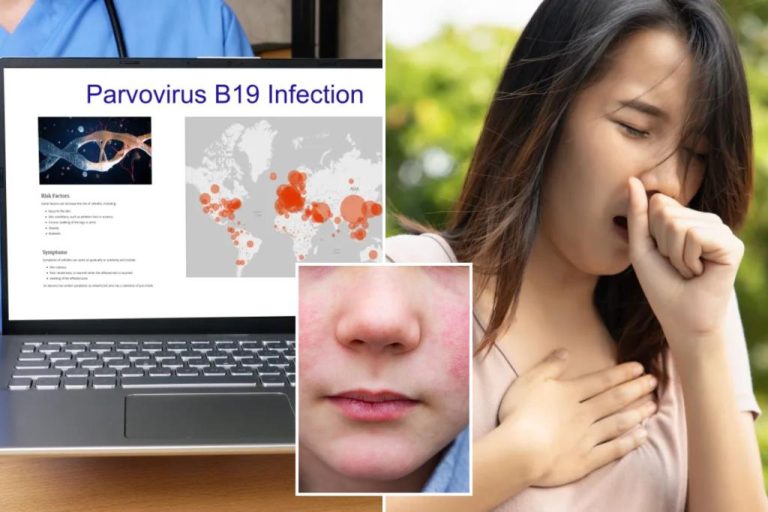The Centers for Disease Control and Prevention (CDC) issued a health advisory this week for health care workers and the general public in response to an increase in cases of human parvovirus B19.
Here's what you need to know about the virus, including how it spreads, how to treat it, and who is at high risk.
What is Parvovirus B19?
The Centers for Disease Control and Prevention (CDC) issued a health advisory this week for health care workers and the general public following an increase in cases of human parvovirus B19. Yurii Kibalnik – stock.adobe.com
Parvovirus B19, also known as the “fifth disease,” is a contagious seasonal respiratory virus that spreads through respiratory droplets coughed or sneezed by symptomatic or asymptomatic infected individuals.
Blood tests can check for the presence of antibodies to parvovirus B19, indicating current or past infection, susceptibility, or immunity.
How does Parvovirus B19 spread?
Parvovirus B19 is spread through respiratory droplets. 9nong – stock.adobe.com
The virus is highly contagious: According to the CDC, household spread can infect 50% of people, and school spread can infect 20% to 50% of students and staff.
Antibodies from past infection are thought to prevent and protect against future infections, and according to the CDC, by age 20, 50% of adults have these antibodies, and by age 40, that number jumps to 70%.
Parvovirus B19 infection can also be transmitted from mother to fetus during pregnancy or through blood or plasma transfusions, although transfusion-associated parvovirus B19 infection is very rare.
What are the symptoms of Parvovirus B19?
Children infected with parvovirus B19 often develop a distinctive rash on their cheeks. CDC
Symptoms of Parvovirus B19 are usually mild and may include:
Fever Headache Cough Sore throat Rash Joint pain
Many people who are infected with parvovirus B19 do not experience any symptoms.
Those who do experience symptoms experience two distinct stages. The first stage occurs about a week after infection and is characterized by fever, muscle aches, sore throat and fatigue. During this stage, which lasts about five days, the amount of virus in saliva and respiratory secretions (an indicator of infectivity) peaks and the person is most contagious.
Sore throat is one of the symptoms of parvovirus B19. bravissimos – stock.adobe.com
During the second stage, about 7 to 10 days after the first stage, children infected with parvovirus B19 often develop a characteristic rash on the face, which may be followed by joint pain and a patchy rash. In healthy adults, the most common symptoms appear during the second stage and include joint pain and a patchy rash on the torso.
Usually, once the rash appears on the face and body, the person is no longer contagious.
How is Parvovirus B19 treated?
Most people recover fully without treatment. Getty Images/iStockphoto
There is no vaccine or specific treatment for parvovirus B19 infection.
Most people infected with parvovirus B19 do not require treatment and will fully recover. Severe outcomes from parvovirus B19 infection, such as myocarditis, hepatitis, and encephalitis, are rare.
A blood test can detect antibodies. luchschenF – stock.adobe.com
Most fetal parvovirus B19 infections during pregnancy resolve without ill effects, but if the mother becomes infected between the 9th and 20th weeks of pregnancy, there is a 5% to 10% risk of fetal anemia or miscarriage.
Treatment of infection in pregnant women includes monitoring and managing severe fetal anemia.
Get the latest advancements in medicine, diet, nutrition tips and more.
Subscribe to our weekly PostCare newsletter.
Thank you for subscribing!
What to do if you think your pet may have Parvovirus B19
Parvovirus B19 can cause serious complications during pregnancy. Getty Images
In healthy people, parvovirus B19 usually resolves on its own without medical assistance, but the CDC urges people to seek medical care if they are pregnant and have symptoms or have been exposed to someone with suspected or confirmed parvovirus B19.
People with weakened immune systems, including those with chronic hemolytic blood disorders such as sickle cell disease, thalassemia, and hereditary spherocytosis, are also urged to seek medical attention if they experience signs or symptoms of Parvovirus B19.

